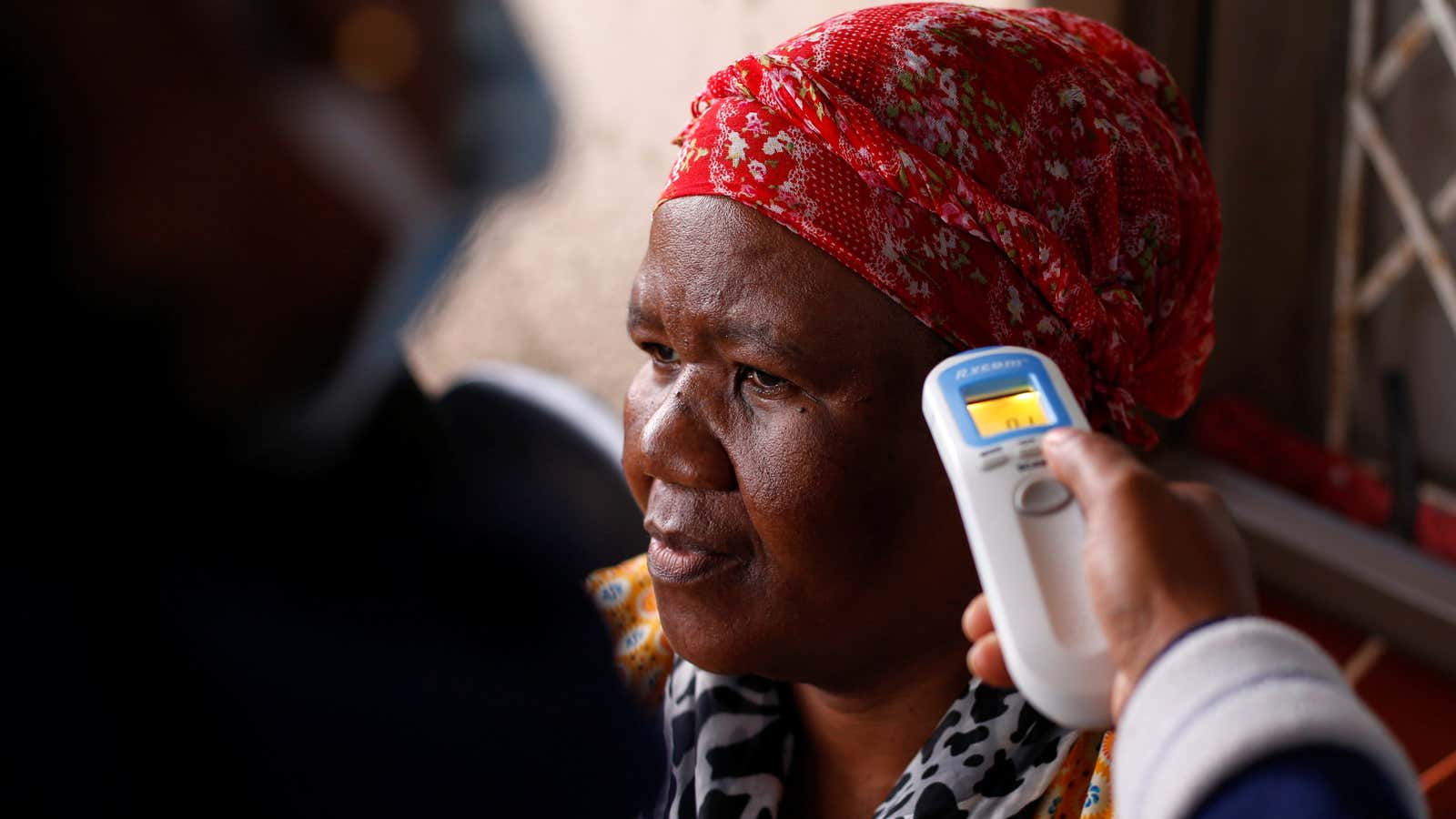According to official statistics, only about 8.5 million cases of covid-19 have been developed in African countries since the beginning of the outbreak. For a continent home to nearly 1.4 billion people, that seems too good to be true—and as it turns out, it is.
World Health Organization (WHO) data found that fewer than 15% of covid-19 cases in African countries are correctly reported. Overall, nearly 60 million people contracted the virus in the continent, though even that number might not be accurate, given the small reach of testing in the region.
The WHO estimates about 70 million covid-19 tests have been administered on the continent, or fewer than 6 per 100 people, since the beginning of the pandemic. The most tested African country, Gabon, administered 50 tests per 100 people, and South Africa about 30 tests per 100 people. By way of comparison, Austria administered up to 1,038 tests per 100 people, the UK 412 tests per 100 people, and the US 170 tests per 100.
The dangers of overlooking Covid-19 in Africa
The reason for the underreporting and lack of testing is the same: Limited healthcare resources. Most African countries lack basic healthcare infrastructures, such as hospitals or even clinics outside cities, making covid-19 tests and diagnoses harder to come by.
An indicator of just how undercounted covid-19 cases might be in the continent comes from South Africa. Even the country with the best healthcare infrastructure in sub-Saharan Africa severely underestimated the number of covid-19 infections and deaths. According to official data, 90,000 people died from covid-19 since the beginning of the pandemic, though an analysis of excess deaths conducted by researchers at the University of Cape Town found a total of nearly 240,000 deaths could be linked to the virus.
Although not as negligible as the official data shows, the incidence of covid-19 has likely been lower in Africa than in other countries. This could be explained by the younger population: Compared to Europe’s median age of 43 and the US’s of 38, the median age in African countries is 19.7, which likely helped avoid larger outbreaks. But as the delta variant spreads in the continent, posing higher risks for younger people, it raises concerns, particularly considering the incidence of HIV, which presents a risk factor when it comes to developing severe cases of covid-19.
With vaccination campaigns lagging all over the continent, the risk of a large covid-19 outbreak is real. The misconception that African countries might be out of peril risks replicating what happened in India, where underestimating the danger of outbreaks, leading to massive loss of lives, as well as the development of the delta variant.
The need for more vaccines
In order to improve the situation, the WHO has announced an initiative to reach 7 million people with diagnostic tests in the next year in 20 African countries where there is currently little to no testing capacity.
Although limited, the program aims to apply the so-called “ring strategy” which identifies and isolates new cases based on proximity—people living within a 100 meter radius of each case—to known ones. This strategy worked to eradicate smallpox, and is used during Ebola outbreaks, too.
Even increased testing capacity doesn’t make up for the lack of vaccines. Currently, while nearly 7 billion doses of Covid-19 vaccines have been administered globally, and nearly half the global population has received at least one dose, the disparity between rich and low-income countries remains huge. Rich countries are now delivering booster shots and letting vaccine doses go to waste as hesitant groups forgo their shots, while poor ones have to wait for leftovers and aren’t likely to reach meaningful immunization before 2023.
In African countries overall, only 5% of the population has received at least one dose of vaccine, although vaccinations rate vary dramatically across the continent. In South Africa, nearly 9% of the population received both doses of vaccine, while in Nigeria fewer than 1% did.
